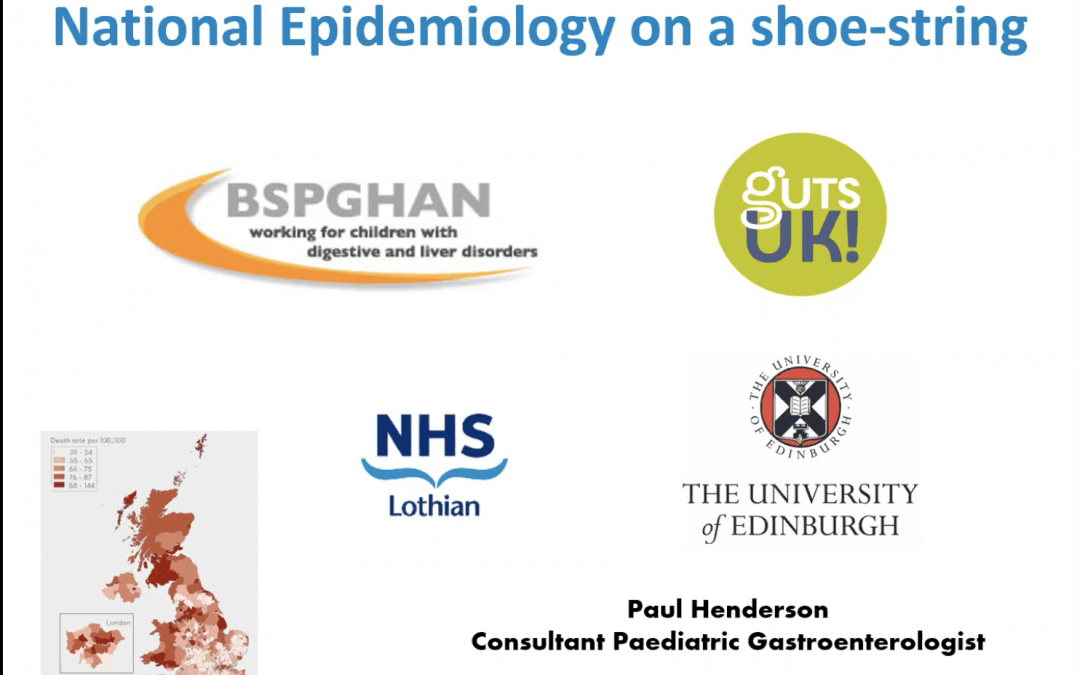Use of therapeutic drug monitoring to manage pIBD (part 1) – Dr David WIlson
This page is restricted to BSPGHAN members.
Please login.
This page is restricted to BSPGHAN members.
Please login.

This page is restricted to BSPGHAN members.
Please login.

Why is this project being done?
A recent project has investigated every RCT in IBD in both adults and children published globally since 1996 (the year the first publication guidance in the CONSORT statement were released). We found that 20% of studies have no sample size estimate to guide how many patients should be recruited to the project. However, for the studies that did calculate power, they used variable and often highly spurious figures of the difference between groups that they expected which leads low numbers of patients included. This has left many studies underpowered and impacts the entire evidence base, as we often see when completing systematic reviews. Guidance, based on actual observed effect sizes, could support trial designers and most importantly ensure funded studies are completed to an appropriate power.
What will participation involve?
We will ask you to attend a face to face session in one of five locations across the UK for approximately 2-4 hours with 5-12 other professionals working within IBD. We will present the actual data for effect size seen over trials in a number of different settings, categorised by disease (UC or CD), current state of activity (induction or remission studies), specific agents of study and age of patients. We will then ask you, based on the actual data presented and the quality and certainty of that data, to estimate what you would think a minimum and maximum likely effect size would be for a trial in a similar setting. Once all the sessions are complete, you will be invited to participate in a second and third stage online, consistent with a Delphi approach. This will present the data from all the sessions analysed and allow a national expert consensus to be reached and this paper published.
Who can get involved?
We are looking at a range of professionals involved with the care of IBD. This can involve consultants, specialist nurses, researchers and indeed patients. We are particular keen on those who have practical experience with a range of treatments with their patients and the success rates / impact of these with their patients, as this will allow practical expert view to enhance the decision making based on the data we represent. No research experience is needed.
Can you tell me more about the face to face session?
These will take place in February and March 2020 in London, Cardiff, Glasgow and Preston. We will have a local meeting space and provide refreshments and also reimburse travel up to £60.
How else can I get involved?
If participants are keen to support this work, they can discuss with our team and potentially support the analysis and write up of the project. We also invite anyone involved in this and other Cochrane works to contact us.
If you are interested in getting involved, please contact mgordon@uclan.ac.uk

Mirum Pharmaceuticals is striving to bring transformative medicines who have rare cholestastic liver conditions. In keeping with their mission they have instituted a a Phase 3 study called MARCH to evaluate the safety and efficacy of maralixibat in pediatric patients with PFIC. Eligible patients in this clinical study may help provide new insights into PFIC and could lead to the first approved drug therapy. For full details please visit https://pfictrial.com/

Contact Us l Privacy Policy l Members Login
© 2021 British Society of Paediatric Gastroenterology, Hepatology and Nutrition l Charity Number 299294 l VAT registration number 323665308